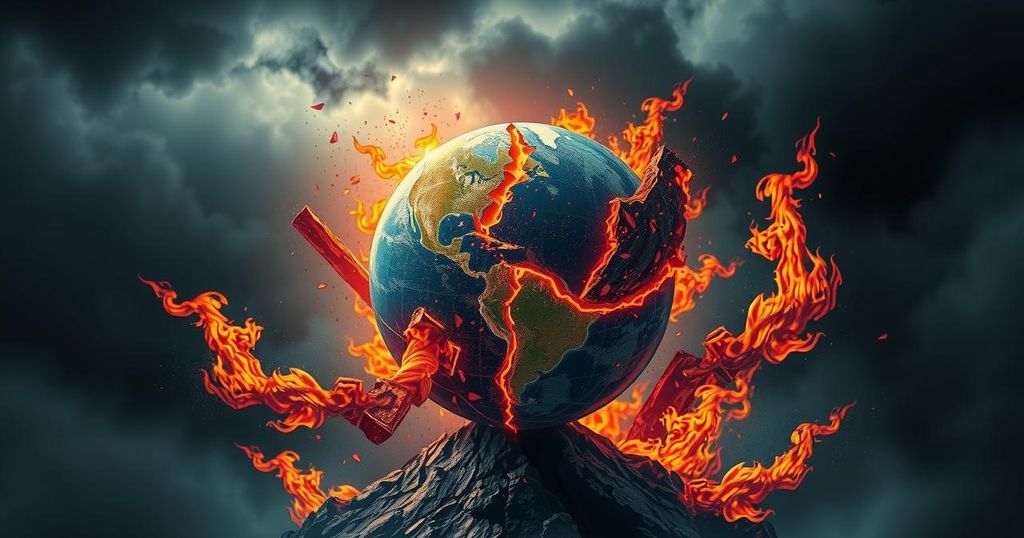In Kinshasa, protesters attacked foreign embassies and a UN building in response to escalating rebel violence allegedly linked to Rwanda. The protests were characterized by vandalism and looting, particularly against the U.S., French, and Ugandan embassies. Anger has been directed at foreign support seen to enable conflict in eastern Congo, particularly associated with the M23 militia’s recent attacks on Goma.
Protesters in Kinshasa, the capital of the Democratic Republic of Congo, demonstrated violently against foreign embassies amid escalating rebel violence in the eastern region, particularly targeting the March 23 Movement (M23) group allegedly backed by Rwanda. Hundreds breached several embassies and a United Nations building, expressing their anger against foreign nations perceived to permit Rwanda’s intervention in Congolese affairs. This coordinated action included burning tires and throwing stones, leading to property damage and chaos around diplomatic premises.
The U.S. Embassy experienced a breach, where protesters damaged the site of a new building under construction, although no injuries were reported. The French Embassy was also attacked, resulting in a significant fire, and looting occurred, which prompted condemnation from French officials. Protesters left a message denouncing President Emmanuel Macron’s perceived betrayal in a context defined by historical colonial legacies and ongoing conflicts.
Furthermore, the Ugandan Embassy faced similar violence, with confirmed accounts of looting and arson. The Belgian Embassy and a United Nations humanitarian agency’s office were also attacked, highlighting a dire situation described by UN officials as one of “total chaos.” A small fire was reported in front of the Rwandan Embassy, reflecting the broader sentiment of frustration directed towards multiple foreign entities.
The protest was fueled by increasing resentment over foreign involvement in the current conflict as the M23 militia launched an offensive against Goma, a strategically important city in eastern Congo. Local populations blame their foreign allies for failing to address and mitigate the escalating violence and for the perceived complicity in Rwanda’s actions against the Congolese state. The outburst is a culmination of ongoing tensions and frustrations regarding international support, sovereignty, and regional stability.
The Democratic Republic of Congo has been embroiled in conflict for decades, with various rebel groups, including the M23, battling for control over resource-rich regions. Tensions have intensified over accusations that Rwanda is providing military support to these groups, contributing to a humanitarian crisis and destabilizing the eastern Congo. International responses have often been criticized for their ineffectiveness in curbing violence, leading to heightened anti-foreign sentiments among the Congolese population. The recent protests reflect a growing frustration with foreign interventions that are perceived to exacerbate, rather than alleviate, local conflicts.
The protests in Kinshasa serve as a powerful expression of public anger against both foreign governments and international organizations amid rising violence from rebel groups in eastern Congo. Diplomatic missions faced significant attacks, reflecting the depth of discontent regarding foreign involvement in Congolese affairs. As violence continues to escalate, it remains crucial for the international community to reassess their strategies and consider the consequences of their actions in the region.
Original Source: www.nytimes.com




